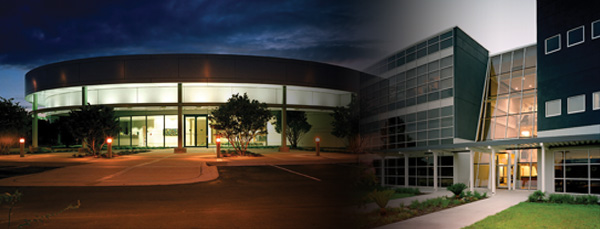Extracts
By Bernie Machen, President and Win Phillips, Vice President for Research

UF spin-off companies foreshadow state’s high-tech future
Last March, President Obama gave a speech at the White House titled “Investing in Our Clean Energy Future.”
His main point was that the nation’s clean energy innovators will help bring about energy independence — while creating new jobs and industries to drive economic recovery.
One of his leading examples was Sinmat, a Gainesville startup featured in this issue. Sinmat is engineering better ways to build microchips used in smart energy systems such as efficient lighting. The president introduced Deepika Singh, who founded Sinmat with her husband Rajiv, a UF professor of materials science and engineering.
President Obama told Deepika and the other innovators, “It’s said that necessity is the mother of invention. At this moment of necessity, we need you. We need some inventiveness.”
What’s true for the nation is also true for this university, for this region and for Florida.
Like most other universities, UF faces severe cuts due to the state’s steep fall-off in tax dollars. At the statewide level, Florida is struggling to find its way now that the mainstays of housing and tourism are in such sad shape.
Research, technology transfer, startups — in Obama’s word, “inventiveness”— all offer a proven path to a better future.
For evidence, we need only look to the past.
People in the tech community say successful commercialization rests on four pillars: exciting technology, entrepreneurship, investment, and good location.
We have demonstrated success in all four areas here at the University of Florida.
“The Today Show” this winter featured WiPower, another UF spin-off profiled in this magazine. Also, the BBC was in town not long ago to film a segment on
Sharklet Technologies, which makes a unique antimicrobial coating for medical devices. These are just two of several startups that have drawn national attention in recent years.
We also have a track record of successful entrepreneurs.
Look no further than Progress Corporate Park, adjacent to the Sid Martin Biotechnology Development Incubator. Some 1,200 people work in the park currently — 85 percent at successful UF spin-offs.
Investment is another strength. To be sure, the downturn has made it tough to attract angel and venture funding, but last year UF spin-offs cracked the $100 million mark in venture funding. And, since the Sid Martin Incubator was founded in 1995, its current and former occupants have brought in at least $300 million in private investment dollars as well as $100 million in grants.
Last but not least, there is a lot going on in this region.
We are part of the Florida High Tech Corridor Council, which works to bolster the technology industry in a 23-county region throughout central and North Florida. More locally, the Sid Martin Biotechnology Development Incubator is full, with nine companies occupying all of its space.
The City of Gainesville’s incubator, the Gainesville Technology Enterprise Center, is also full, with nine of its own companies.
Indeed, there is so much demand for startup support that earlier this spring we made the decision to pursue another incubator on the Alachua General Hospital property.
In our proposal to the federal Economic Development Administration for a major grant, we argued that nurturing small, innovative companies is essential to restoring and diversifying Florida’s economy. The more we can do on this score, the better, and this new incubator can add another vital pillar of support.